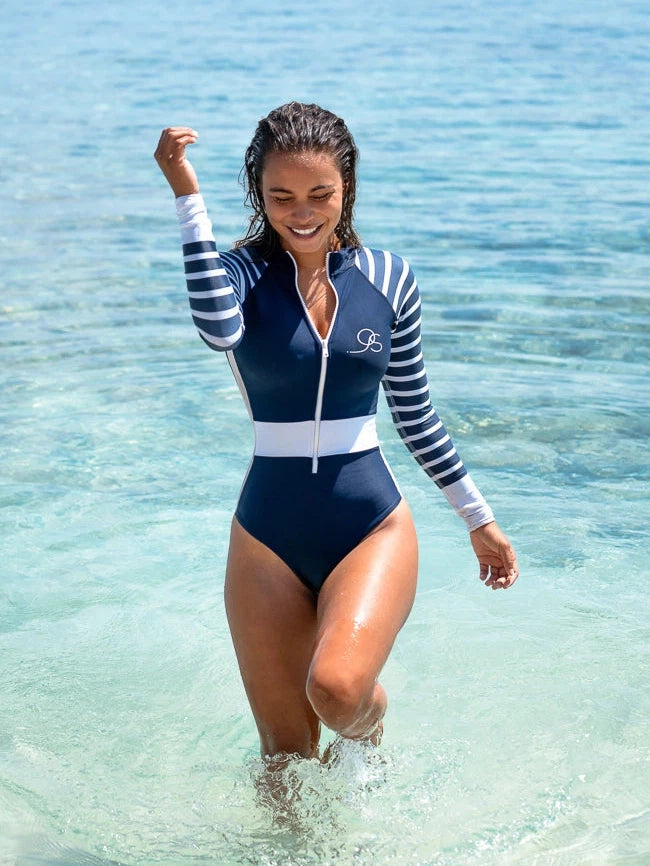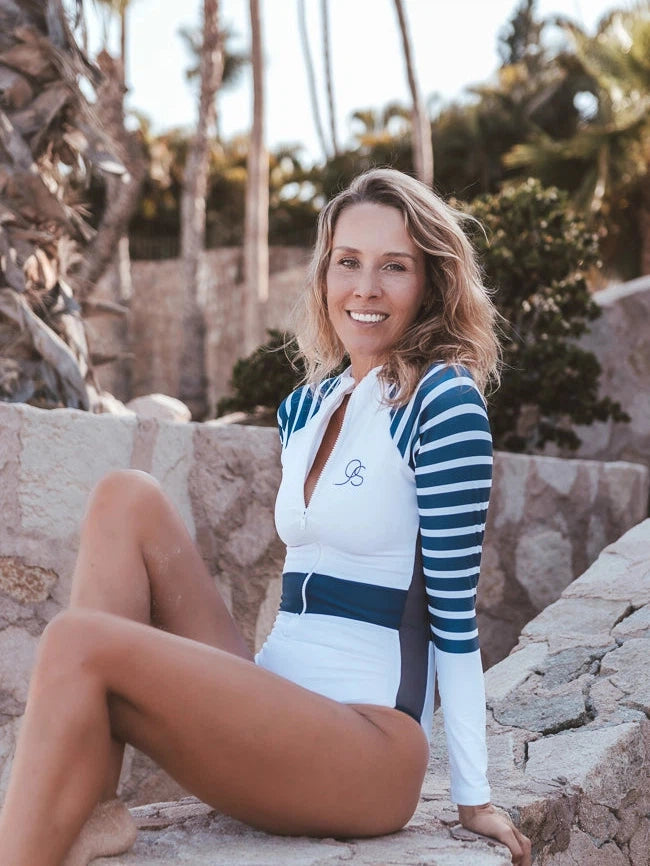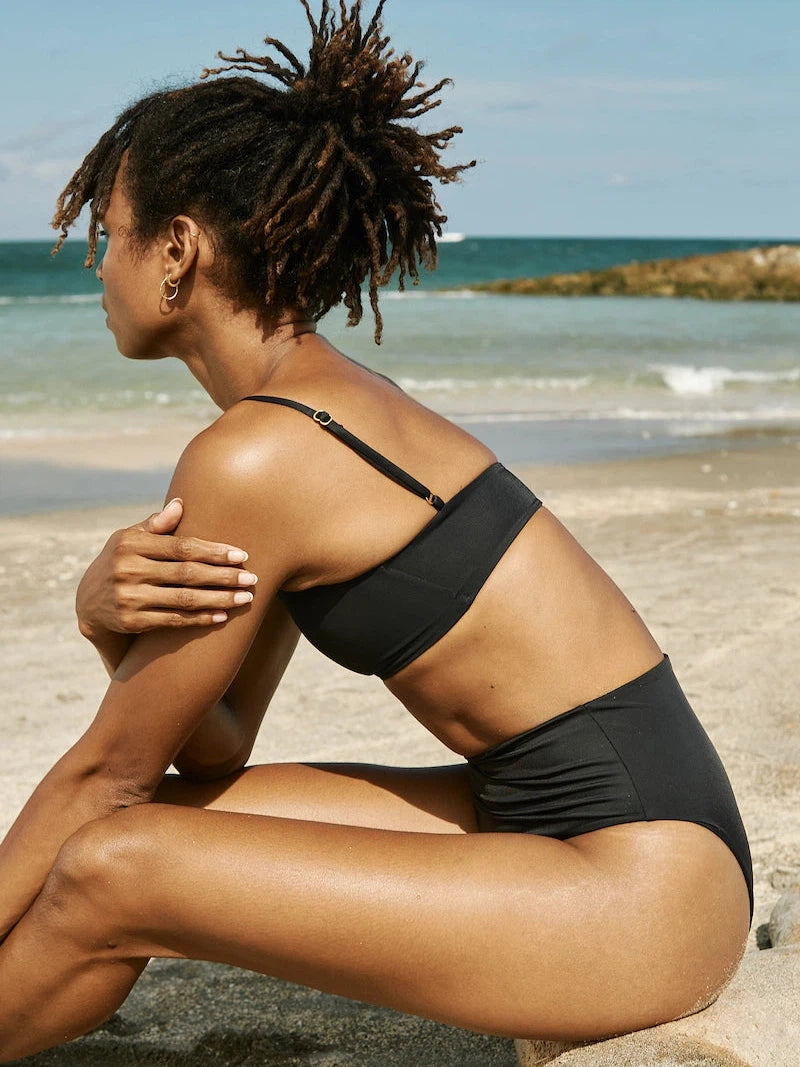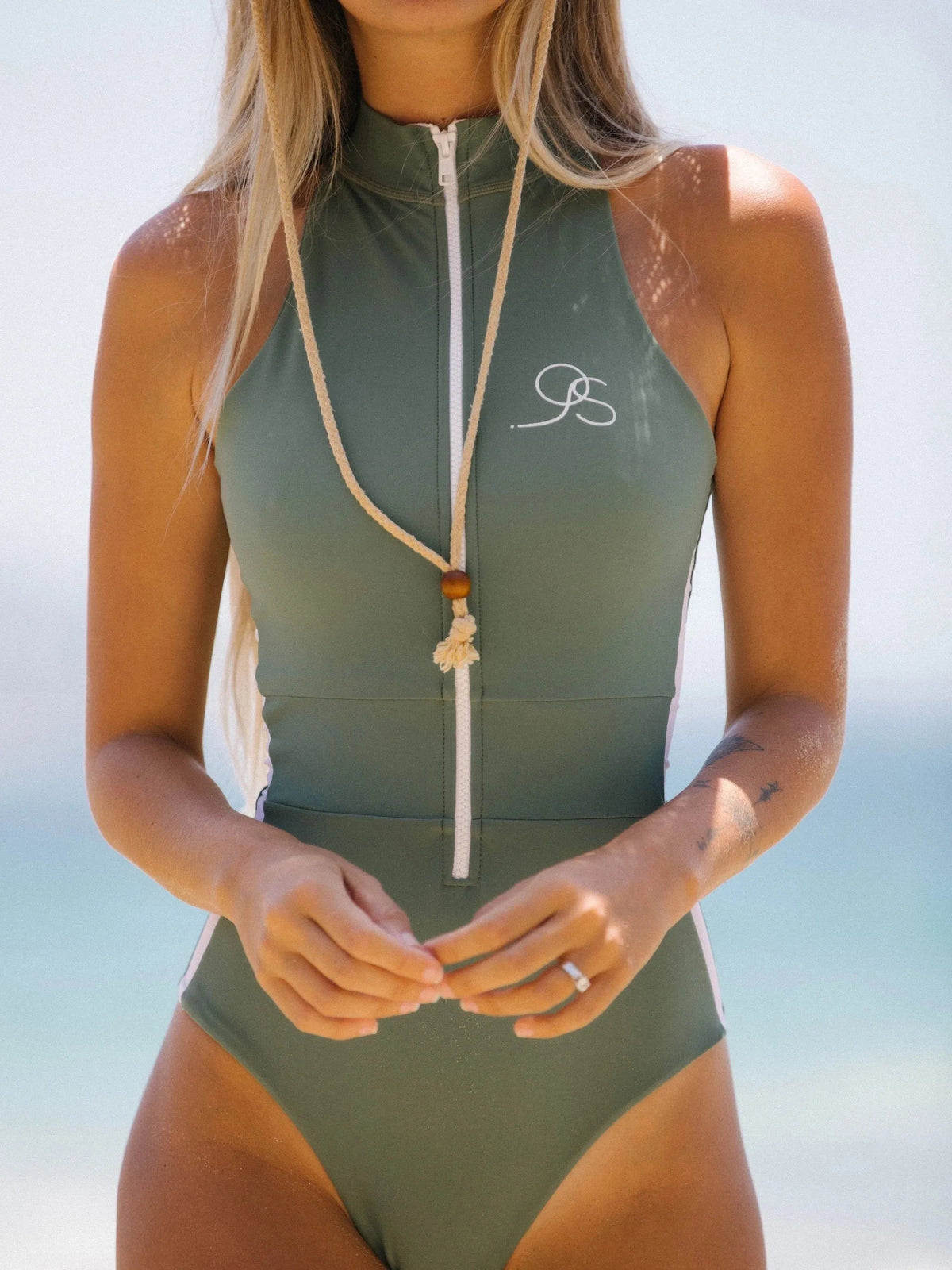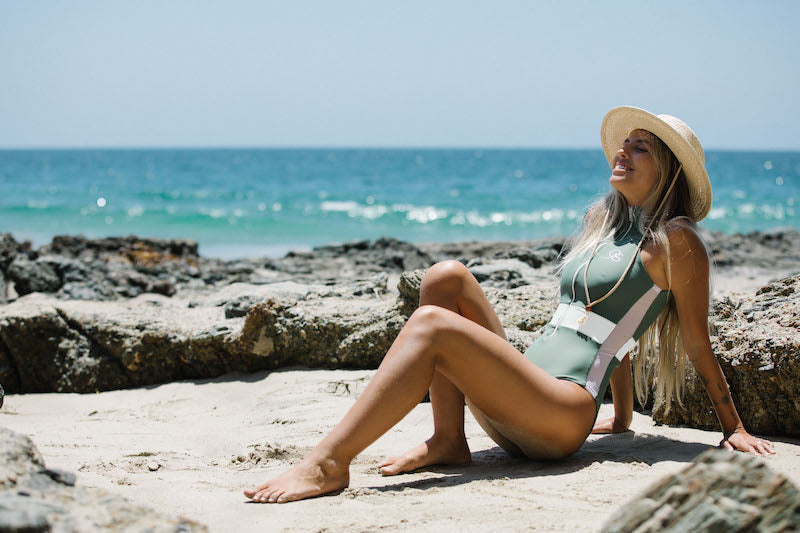There’s a certain kind of magic that lives in salt water. You feel it the moment your toes touch the shoreline and the breeze shifts-your shoulders drop, your breath deepens, and suddenly the weight you’ve been carrying doesn’t feel quite so heavy.
Can anyone learn to Freedive?

Freediving Swimsuits
Sustainable Swimwear | The Sulawesi in Nautical
- Regular Price
- $171.00 USD
- Sale Price
- $171.00 USD
- Regular Price
-
$171.00
- Unit Price
- per
Long Sleeve Swimsuit | The Sulawesi Midnight
- Regular Price
- $171.00 USD
- Sale Price
- $171.00 USD
- Regular Price
-
$171.00
- Unit Price
- per
Black one piece swimsuit | The Mentawai in Midnight
- Regular Price
- $149.00 USD
- Sale Price
- $149.00 USD
- Regular Price
-
$149.00
- Unit Price
- per
One Piece Swimsuits | The Mentawai in Nautical
- Regular Price
- $149.00 USD
- Sale Price
- $149.00 USD
- Regular Price
-
$149.00
- Unit Price
- per
Surf bikini Top | Bali Bikini
- Regular Price
- $60.00 USD
- Sale Price
- $60.00 USD
- Regular Price
-
$60.00
- Unit Price
- per
Long sleeve swimsuits| The Sulawesi in Olive
- Regular Price
- $171.00 USD
- Sale Price
- $171.00 USD
- Regular Price
-
$171.00
- Unit Price
- per
Womens Rashvest | The Aceh
- Regular Price
- $90.00 USD
- Sale Price
- $90.00 USD
- Regular Price
-
$90.00
- Unit Price
- per
High Waisted Bikini Bottoms | The Sumba
- Regular Price
- $60.00 USD
- Sale Price
- $60.00 USD
- Regular Price
-
$60.00
- Unit Price
- per
Long Sleeve Swimwear | The Sulawesi in Snow
- Regular Price
- $171.00 USD
- Sale Price
- $171.00 USD
- Regular Price
-
$171.00
- Unit Price
- per
Long Sleeve One Piece Swimsuit | The Sulawesi Snow and Navy
- Regular Price
- $171.00 USD
- Sale Price
- $171.00 USD
- Regular Price
-
$171.00
- Unit Price
- per
High Waisted Bikini Bottom | The Sumatra
- Regular Price
- $60.00 USD
- Sale Price
- $60.00 USD
- Regular Price
-
$60.00
- Unit Price
- per
Sustainable Swimwear | The Mentawai in Olive
- Regular Price
- $149.00 USD
- Sale Price
- $149.00 USD
- Regular Price
-
$149.00
- Unit Price
- per
Blog posts
For women who surf, a bikini isn’t just a bikini. It’s equipment. It needs to stay on in duck dives, offer coverage when paddling out, and still feel beautiful when you’re basking on the sand afterward.
Surfing taught me that intuition isn’t some mystical gift reserved for gurus and mystics-it’s your body’s wisdom, your ocean-cycled self, your voice under saltwater.




